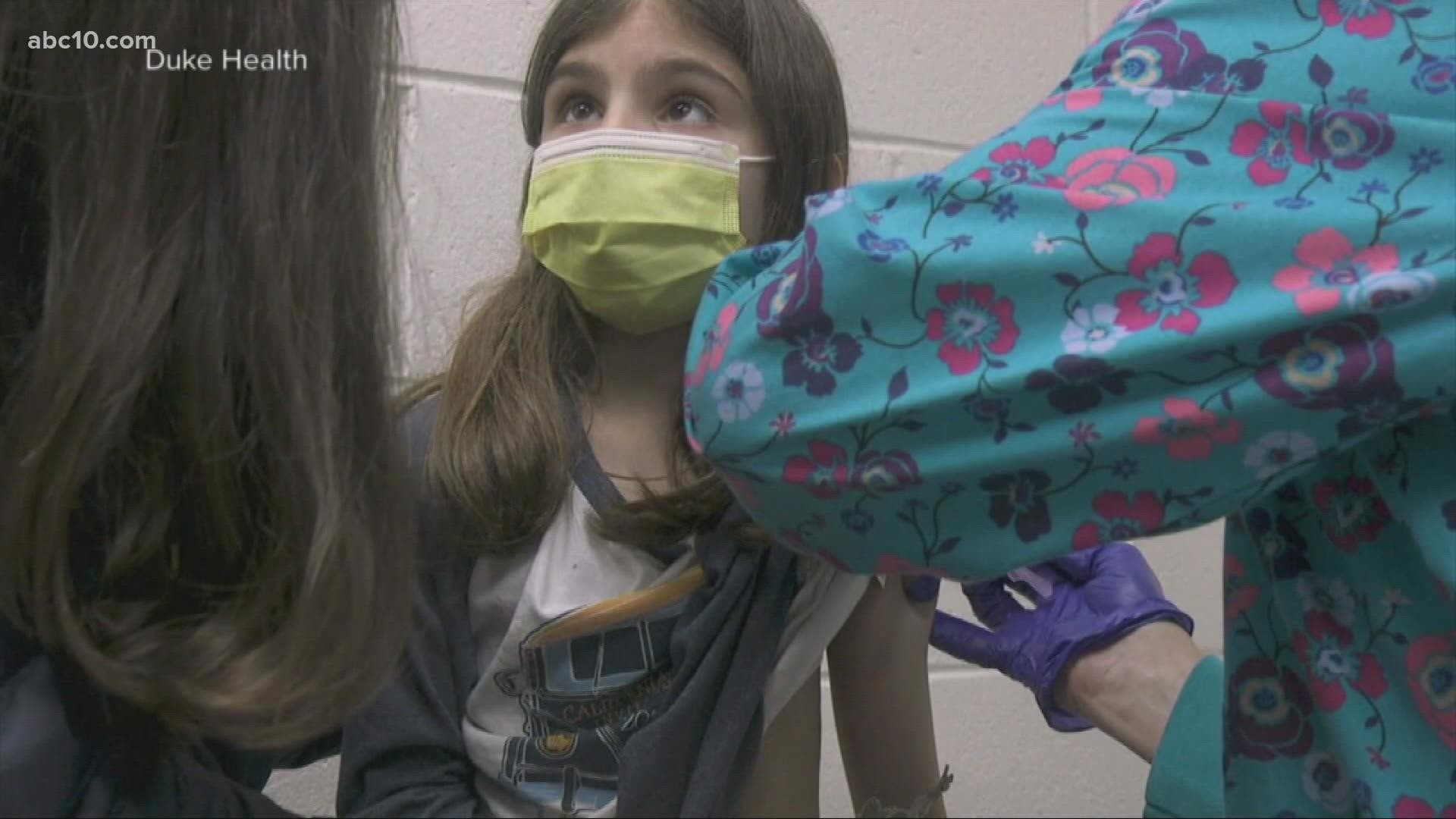SACRAMENTO, Calif. — The FDA is set to make a decision on approving the COVID-19 vaccine for children ages five to 11-years-old on Tuesday.
ABC10 Health Expert Dr. Payal Kohli explains how a lower dosage was determined.
For the average adult, the dose of the vaccine is 30 micrograms, for children between five and 11-years-old it's 10, and for children under five medical professionals are studying a dosage of three micrograms. Kohli said multiple studies helped make this determination.
"Number one, their body size is smaller, so they may not need as much of a dose. Number two, the idea is not necessarily that more is better. You essentially want to give them the least dose possible to induce the immune response. So, the least amount of vaccine that you need to use to tickle their immune system to sort of wake up and make that response," Kohli said.
For children nearing 12-years-old, Kohli said parents shouldn't put off the vaccine to make sure they are getting the full dosage.
"You don't necessarily want to wait until they turn 12 and give them the 12-year-old dose because you're losing time. You're losing protection while you're waiting for them to turn 12. So, just do it based on their age, not necessarily based on their body weight or their body mass index," Kohli said.
Kohli told ABC10 if someone is feeling concerned, having a straightforward conversation with the child's pediatricians is the best way to make a decision.
READ MORE:
ABC10: Watch, Download, Read
WATCH MORE ABC10:



















